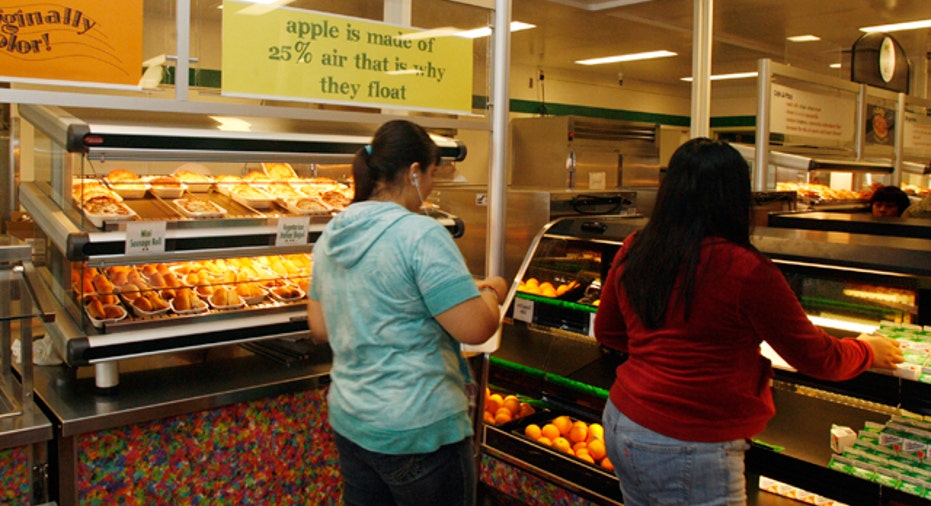Avoid the Freshman 15: Pick the Right Meal Plan

Growing up is tough enough without the worries of your financial future, so Money101 is here for you. E-mail us your questions and let us take off some of the pressure.
As freshmen gear up to head off to school in the fall, they are realizing that not only are they saying goodbye to their parents, they are also leaving behind home-cooked meals and the comfort of a fully-stocked fridge and pantry.
Choosing a meal plan for college can be difficult with most schools offering different plans to suit a wide range of eating habits. College life can be hectic and its important students provide their body with enough good fuel to give them the energy to hop from a lecture, to an intramural soccer game and then a study group.
You want to be at your best studying so you can remember and have the energy to make it through your day, says registered dietician Mitzi Dulan. The food that you eat really can make a difference in how you can really optimize the energy for your day.
Meal plans are a convenient and cost-effective way for college students to eat, but because dining halls tend not be open around the clock, its important students choose the right plan.
Choosing a meal plan
Meal plans take the stress out of planning meals, shopping for food and dining out for college students already facing back-to-back classes and work schedules.
Fitness expert Jaime Brenkus explains that not getting enough food makes it more difficult for students to study and retain information.
Your brain needs glucose to survive and if your blood sugar level is low, you really cant function that well, he says. You really cant be 100% on your game at that point.
For most schools, meal plans are built into tuition costs, something students and their families have already planned for. Tight budgets can often lead to students choosing inexpensive fast food options, which can result in unhealthy habits and weight gain, says Dulan.
Many universities offer different levels of meal plans; some include all meals plus extra money for snacks, while others are more limited. Students should choose a plan that corresponds with how much time theyll be on or off campus.
Lisa Hark, family nutrition expert, recommends students eat at least two meals a day on their plan, and to try and eat with friends because it forces them to slow down.
Brenkus suggests making a balanced plate for each meal: half for fruit and vegetables, a quarter for protein, and a quarter for carbohydrates (each one no bigger than your fist). He also stressed the importance of protein for students energy and endurance.
Protein makes you feel fuller, longer, says Brenkus. For college kids, thats a plus.
But having a meal plan doesnt necessarily mean healthy eating, the experts warn. To avoid the dreaded freshman 15, students should be aware of portion control, which can be especially difficult with the gigantic-sized helpings or buffet-style spreads dining halls usually offer.
That creates an excess in portion sizes and if youre going to do it every day and every meal, youre eating much more than you normally would eat, so its very easy to add calories, says Hark. Pace yourself, have some balance [on your plate], and listen to your body, because when you start to feel full, thats when you want to stop.
Another downside to meal plans is the extensive (not to mention tempting) dessert selection. Hark says that just because its free, doesnt make it OK.
One or two times a week have the desserts, says Hark. Not every day and not every meal.
When youre not on campus
Student should keep healthy snacks in their dorms to bring along on a particularly busy day when they can't fit in a dining hall stop or just for grazing on during study sessions.
Hark suggests students keep a supply of unsalted nuts, dried fruit, peanut butter, crackers and rice cakes in their dorm room, saying they will feel much better eating foods rich in vitamins and protein rather than fulfilling cravings for sugar and caffeine, which only provide a temporary boost before a crash.



















